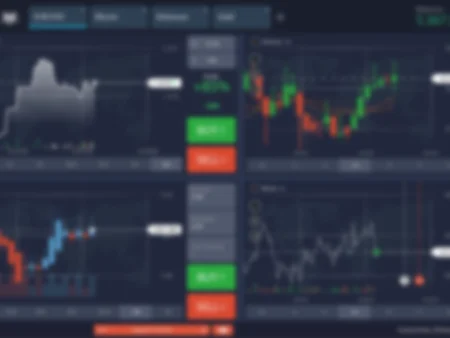What is the Shares Market and How Do You Trade Them?
The shares market, also known as the stock market or equities market, is a platform where individuals and institutions can buy, sell, and trade shares of publicly listed companies. When you buy a share, you purchase a small ownership stake in a company, entitling you to a portion of its profits and a say (albeit small) in its operations, depending on the type of shares you own.
1. What is a Share?
A share represents a unit of ownership in a company. Companies issue shares to raise capital from investors, which they can use to grow or fund operations. When you buy shares, you essentially become a shareholder and own a fraction of the company. In return, you may receive dividends (a share of the company’s profits) and benefit from the appreciation in the share price.
Types of Shares:
- Common Shares: Most investors hold common shares, which provide voting rights and the potential for dividends.
- Preferred Shares: These typically don’t offer voting rights but provide fixed dividends and priority over common shares when it comes to company earnings and assets.
2. How Does the Shares Market Work?
The shares market functions through stock exchanges, where buyers and sellers meet to trade shares. The price of a share is determined by supply and demand: if more people want to buy a stock, the price goes up; if more people want to sell, the price goes down.
Major Stock Exchanges:
- New York Stock Exchange (NYSE): One of the largest and most prestigious exchanges globally.
- NASDAQ: Known for tech-heavy listings like Apple, Amazon, and Google.
- London Stock Exchange (LSE): One of Europe’s most important exchanges.
- Tokyo Stock Exchange (TSE): The primary exchange in Japan.
Shares can be traded during regular market hours, and some platforms offer after-hours trading, where shares can be bought and sold outside of regular market hours, though this often comes with less liquidity and greater price volatility.
3. How to Trade Shares
Trading shares can be done in several ways, depending on your goals and the platform you choose. Here’s how you can get started:
a) Choose a Trading Platform or Broker
To start trading shares, you need to open an account with a broker. Brokers provide access to the stock exchanges and execute buy or sell orders on your behalf. There are two main types of brokers:
- Full-Service Brokers: These provide personalized advice and manage investments for clients but usually charge higher fees.
- Discount Brokers: These allow you to trade independently at lower costs, often through online platforms.
Popular online brokers include platforms like E*TRADE, Robinhood, Interactive Brokers, and Fidelity.
b) Fund Your Account
Once you’ve selected a broker, you’ll need to fund your account by transferring money. Some brokers require a minimum deposit, but many now offer no-minimum accounts.
c) Decide What to Trade
Research is key when trading shares. Here are a few strategies you can use:
- Fundamental Analysis: Examining a company’s financial health, earnings, revenue, and market conditions to assess whether it is a good long-term investment.
- Technical Analysis: Using stock charts, price trends, and technical indicators to predict future price movements based on past behavior.
- News and Events: Keeping an eye on corporate news, economic reports, and geopolitical events, as they can affect share prices significantly.
d) Place Your Order
There are different types of orders you can use when trading shares:
- Market Order: A request to buy or sell a stock immediately at the current market price.
- Limit Order: A request to buy or sell a stock at a specific price or better. For example, if a stock is trading at $50 but you want to buy it only if it drops to $48, you would place a limit order at $48.
- Stop-Loss Order: This allows you to set a specific price at which the stock will automatically sell, protecting you from larger losses.
e) Monitor Your Investment
Once you’ve purchased shares, keep an eye on the company’s performance, stock price, and market conditions. You can decide whether to hold the shares for long-term growth or sell them when they reach your desired profit level.
4. Why Invest in the Shares Market?
a) Potential for Growth
The shares market historically offers higher returns than other investment vehicles like bonds or savings accounts, especially over the long term. By investing in successful companies, you can benefit from their growth and profitability.
b) Dividend Income
Many companies pay dividends, which are regular payments to shareholders from a portion of the company’s profits. This provides investors with a source of income, in addition to any gains from the rising share price.
c) Liquidity
Shares of major companies are highly liquid, meaning they can be bought and sold easily without significantly affecting their price. This allows investors to quickly enter or exit positions as needed.
d) Ownership and Voting Rights
Owning shares in a company gives you a stake in its success. Shareholders of common stock often receive voting rights, allowing them to influence decisions such as electing the board of directors or approving mergers.
5. Risks of Trading Shares
While the shares market offers great potential for profit, it also comes with risks:
a) Market Volatility
Stock prices can be highly volatile, especially in the short term, due to a variety of factors like economic downturns, political events, or changes in the company’s performance.
b) Loss of Capital
There is always the possibility of losing the money you invested. If a company’s performance worsens or if market conditions are unfavorable, the value of your shares could decrease.
c) Unpredictability
Stock market prices are influenced by countless factors, many of which are unpredictable. Even strong companies can see sharp declines in share prices due to broader market conditions.
6. How to Manage Risk in the Shares Market
Successful trading requires managing risk. Here are some strategies to reduce the risks associated with trading shares:
- Diversify Your Portfolio: Spread your investments across different sectors, industries, and asset classes to reduce the impact of poor performance in one area.
- Set Stop-Loss Orders: Protect yourself from large losses by setting stop-loss orders to automatically sell shares if they fall to a certain price.
- Do Your Research: Always research the companies you’re investing in to ensure they have strong fundamentals and growth potential.
- Stay Informed: Keep up-to-date on market news, economic indicators, and financial reports that could affect your investments.
Conclusion
The shares market offers exciting opportunities for both novice and seasoned investors. By understanding the basics of how shares work and adopting a smart trading strategy, you can potentially profit from the growth of companies and the overall market. However, trading shares comes with risks, so it’s essential to have a sound risk management plan in place. Whether you’re looking for long-term investments or short-term gains, the stock market remains one of the most accessible and liquid ways to build wealth.
Always remember: the key to successful trading lies in careful planning, consistent research, and effective risk management.













